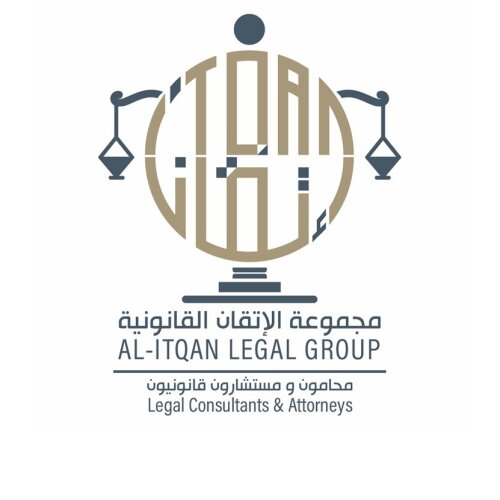Best E-commerce & Internet Law Lawyers in Kuwait City
Share your needs with us, get contacted by law firms.
Free. Takes 2 min.
List of the best lawyers in Kuwait City, Kuwait
About E-commerce & Internet Law in Kuwait City, Kuwait
E-commerce and Internet Law in Kuwait encompass a range of legal issues prevalent in the digital and online marketplace. As Kuwait continues to engage in digital transformation, laws have been established to govern online trade, electronic contracts, consumer protection, data privacy, and cybersecurity. This legal framework is essential to promote a trustworthy digital environment, encouraging both local and international businesses to operate efficiently and securely.
Why You May Need a Lawyer
The dynamic nature of E-commerce and Internet Law means that businesses and individuals often face unique legal challenges. Common situations where legal assistance might be needed include:
- Understanding compliance with local e-commerce regulations and tax codes.
- Drafting and reviewing electronic contracts and terms of service for online platforms.
- Resolving disputes with customers or other businesses over online transactions.
- Navigating data protection and privacy laws, especially for companies handling personal data.
- Protecting intellectual property in digital content and technology innovations.
- Addressing cybersecurity incidents, such as data breaches or online fraud.
- Expanding international business operations within the legal framework of Kuwait.
Local Laws Overview
Kuwait has introduced several laws pertinent to e-commerce and internet-related activities, adapting global legal standards to local circumstances:
- Electronic Transactions Law (Law No. 20 of 2014): This law provides a legal foundation for electronic contracts, signatures, and documentation, ensuring their acceptance as valid and enforceable as traditional paper documents.
- Consumer Protection Law: Regulates business practices to safeguard consumer interests in e-commerce transactions, addressing issues like disclosure and fair trading standards.
- Data Protection: Although there is no comprehensive data protection law, specific provisions in various legislation help protect personal data and privacy, with ongoing discussions for more comprehensive laws.
- Intellectual Property Laws: Cover copyrights, trademarks, and patents to protect creators and businesses in digital content and technology.
- Cybercrimes Law: Addresses online criminal activities, including fraud and unauthorized data access, to ensure secure and reliable e-commerce environments.
Frequently Asked Questions
What are the key privacy concerns for e-commerce businesses in Kuwait?
Businesses must ensure that personal data collected from customers is adequately protected and used in compliance with local and international privacy standards, even though a comprehensive privacy law is yet to be implemented in Kuwait.
Is electronic signature legally recognized in Kuwait?
Yes, electronic signatures are recognized under the Electronic Transactions Law, granting them legal validity similar to handwritten signatures.
How can I ensure compliance with consumer protection laws in online sales?
Ensure transparent communication about products, fair pricing, clear return policies, and handling of complaints in adherence to the Consumer Protection Law.
What constitutes a legal e-commerce business in Kuwait?
An e-commerce business must register with the appropriate authorities, comply with tax and business regulations, and adhere to local consumer protection and data laws.
How does Kuwait handle cybersecurity in online transactions?
Kuwait’s Cybercrimes Law seeks to enhance online security by penalizing cybercrimes and endorsing practices that protect against data breaches.
Can foreign companies operate e-commerce businesses in Kuwait?
Yes, foreign entities can establish e-commerce ventures in Kuwait, subject to compliance with local business regulations and partnership requirements with Kuwaiti stakeholders.
What are the implications for non-compliance with e-commerce regulations?
Non-compliance can lead to fines, legal action, or business operation suspension, depending on the gravity of the infringement.
How are intellectual property rights protected for digital content?
Kuwait enforces IP laws that protect copyright, trademarks, and patents, requiring businesses to respect and safeguard their own and others’ intellectual property in the digital realm.
What role does the government play in promoting e-commerce in Kuwait?
The Kuwaiti government actively seeks to create a favorable environment for e-commerce through legislation, infrastructure development, and initiatives encouraging digital entrepreneurship.
How can online fraud be mitigated in my e-commerce platform?
Implementing robust security protocols, regular software updates, customer verification processes, and compliance with cybersecurity guidelines can mitigate online fraud.
Additional Resources
For further assistance, consider the following resources:
- Ministry of Commerce and Industry: Oversees business regulations and provides guidelines for commerce activities in Kuwait.
- Kuwait Institute for Scientific Research (KISR): Offers insights into technology and cybersecurity trends.
- Kuwait Chamber of Commerce and Industry: Supports businesses through advocacy and resources on regulatory compliance.
- Local Legal Firms: Provide specialized services in e-commerce and internet law-related areas.
Next Steps
If you require legal assistance in the realm of e-commerce and internet law in Kuwait, consider the following steps:
- Identify the specific legal issue or requirement you need assistance with.
- Research and consult with legal professionals specializing in e-commerce and internet law.
- Prepare relevant documents and information before meeting a lawyer to expedite the advisory process.
- Follow legal counsel’s guidance to implement changes or comply with regulations efficiently.
Engaging with a knowledgeable legal expert will help navigate the complexities of Kuwait’s e-commerce and internet laws effectively, safeguarding your business interests.
Lawzana helps you find the best lawyers and law firms in Kuwait City through a curated and pre-screened list of qualified legal professionals. Our platform offers rankings and detailed profiles of attorneys and law firms, allowing you to compare based on practice areas, including E-commerce & Internet Law, experience, and client feedback.
Each profile includes a description of the firm's areas of practice, client reviews, team members and partners, year of establishment, spoken languages, office locations, contact information, social media presence, and any published articles or resources. Most firms on our platform speak English and are experienced in both local and international legal matters.
Get a quote from top-rated law firms in Kuwait City, Kuwait — quickly, securely, and without unnecessary hassle.
Disclaimer:
The information provided on this page is for general informational purposes only and does not constitute legal advice. While we strive to ensure the accuracy and relevance of the content, legal information may change over time, and interpretations of the law can vary. You should always consult with a qualified legal professional for advice specific to your situation.
We disclaim all liability for actions taken or not taken based on the content of this page. If you believe any information is incorrect or outdated, please contact us, and we will review and update it where appropriate.












